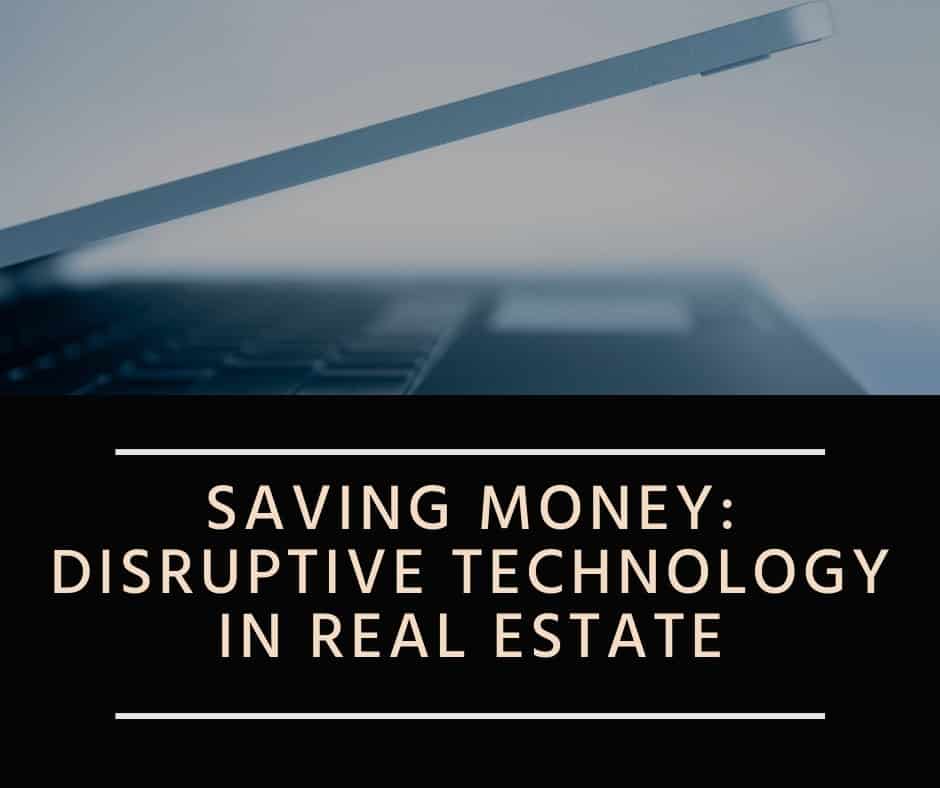Real Estate Disruptors
Over the last decade, new technologies have brought about many “disruptive” innovations that have resulted in tremendous changes for the industries they’ve affected.
New emerging technologies are revolutionizing our world, and along the way will inevitably render many industries obsolete. Consider how digital content took the place of Blockbuster and Uber, who is changing and challenging the taxi industry.
Airbnb has disrupted the hotel and tourist industry, and now the real estate industry has also become vulnerable to information-driven disruption.
Diminishing Value
Diminishing value has hit the real estate industry. With online resources like Zillow, Redfin, and Realtor.com, there’s less need for a real estate agent to provide consumers with information that is now readily available to them online.
The shift has taken place and there is pressure coming from consumers, why pay 6% commission when you can list your home for less. Ten years ago real estate agents were the gatekeepers to all things real estate, but now that consumers have access to that information.
The role of the real estate agent has become that of the trusted adviser. The need for real estate agents that don’t provide anything of true value is diminishing rapidly.
This isn’t to say that real estate agents aren’t needed. They certainly are. Knowledgeable and professional agents offer a wealth of value.

The Market Has Spoken
According to the National Realtors Association, (NAR), 2018 National Report on Home Buyers and Sellers, “74% of buyers from all generations frequently use the internet to search for a home.
Ninety-two percent of buyers 37 years and younger frequently used the internet during their home search process. Millennials are the number one demographic as homebuyers and the first place they go for information is to the Internet.
Real estate service companies are cropping up from everywhere to accommodate that shift. Today just about anyone knows, that an online search will quickly show properties that are for sale in your area and what their value.
Often, the homebuyer is already privy to this information before they ever meet with a real estate agent.
Ripe For Change
Disruptive real estate technologies and consumer acceptance of them have grown exponentially over the last decade. The real estate industry is struggling to keep up with the changing tide but, like other industries, it will learn to adapt and survive.
The need to pay an agent a 6% commission is changing just as an agents role is changing. As home sellers take over more of the selling process agents will need to adapt to their new roles as an adviser and consultant. This is partly the reason that discount real estate brokers have exploded as a real estate disruptor.
Empowering The Consumer
While the full impact of the digital revolution on the real estate industry has yet to be seen, there is a strong movement towards empowering the consumer. As people continue to access the internet and gather the data they need online, it will continue to reduce the need for the middleman.
1 Percent Lists has found a way to utilize these “disruptive” technologies to evaluate property and neighborhood data to provide consumers access to information and services previously provided by an agent. We also leverage a high level of real estate search engine optimization, social media marketing and even Google Ads from a professional search engine optimization agency.
This allows us to cut out the middleman and pass the savings along to you, whether you are searching for real estate or selling your home.

Forecasting 2019 Real Estate disruptors
In a technologically expanding world with artificial intelligence, electric cars, Uber, Netflix, personal space flights, bitcoin, and more, the Real Estate industry just seems to keep grinding on resisting change at every turn.
But the Real Estate industry cannot hold out forever, so what are the major disruptors that will ruffle feathers this year?
Youth And Technology
The first is obvious but bears pointing out and that is youth. The world is getting more and more tech savvy while the average age of a Realtor is about 60 years old. However, there are more and more younger agents that are starting to act as internal disruptors to Realtors.
Just as the industry has been resistant to change so has its Realtors. The 60 plus Realtor crowd with very limited social media and internet knowledge is rapidly getting crowded out by the younger generation that can do much more productive marketing for less money. This is why many of these younger tech-savvy Realtors are joining lower cost discount real estate brokerages because they can do so much more with less and can sell your house cheap.
The second biggest disruptor is margin compression. For years on end the real estate industry has operated in a very hush-hush monopoly of price fixing. Sure no one really collaborates to charge 6% but everyone does seem to be stuck on that number.
Every other industry known to man is fighting to sell you a better product for less money but the real estate industry seems completely oblivious to this idea. However, real estate technology is changing that.
Sellers are wising up to the fact that “old-school” marketing techniques are all but extinct and the internet and social media is driving sales. With that being the case Realtors have less influence over sales than they ever have and they are losing their influence on a daily basis.
Discount real estate brokerages are wise to this and they are seeking to offer you the services you actually need like social media and internet marketing and not forcing you to pay for services that you don’t need like open houses and magazine ads.
Youth and margin compression are going to be huge disruptors to the real estate industry in 2019 and going forward that the real estate industry will have to deal with. Younger agents are learning how to do more with less and they are applying the lower cost higher value principle that they see in every other industry to real estate and it is scaring the socks off the older real estate crowd.
Economy And Interest rates
For all but the wealthiest, the lack of wage growth is slowing the housing demand, while consumers are limiting their spending it’s putting a strain on growth in the economy.
Lumber prices are dropping fast, although, new construction has fallen by 12% in June, 2018. New data from NAR is showing home prices are continuing to rise and predicted to rise another 5% by 2019, while a lack of listing are slowing sales.
Interest rates are on the rise, changing the residential real estate market, and proving that buying a home is less affordable for the first time buyer. Sellers are demanding record home prices, yet first-time buyers are struggling to afford them or the new construction that is being built.
Natural Resources And Infrastructure
To improve critical infrastructures it is estimated that 4.5 trillion is needed by 2025, stated by the American Society of Civil Engineers. Repairing things like public transit, roads, bridges, airports, electricity, and water and sewer lines.
Energy and water are being threatened by environmental damage, and are vital to quality of life and real estate property.
Change is coming and it should be welcomed. It is about time the real estate community actually saw some real innovation.




